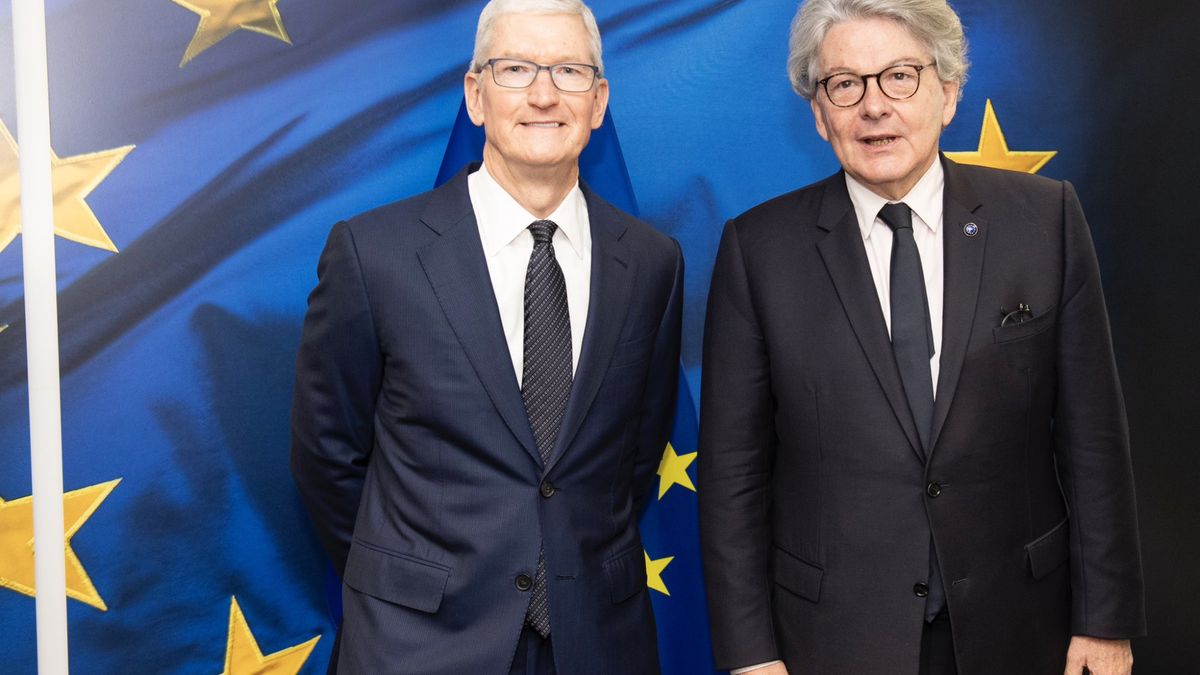The EU chief that leads the bloc’s Internal Market says it wants Apple to shift its business mode on the iPhone to give consumers more choices and services from competing providers.
The comments come as Apple CEO Tim Cook visited Europe this week, stopping by an Apple store in Brussels before moving on to Denmark. As you might expect, Cook made no mention of a passing visit with EU Commissioner Thierry Breton, but Breton himself did tweet about the visit on Tuesday, alongside a video that appears to include him showing off a collection of old Apple cables to Cook — just days after Apple unveiled its new iPhone 15 with USB-C, a move forced by EU legislation.
Breton marked the visit by calling on Apple (and other Big Tech) to “open up its gates to competitors,” a move he sees as the next step under the EU’s emerging Digital Markets Act. In comments made to Reuters, Breton said that “consumers using an Apple iPhone should be able to benefit from competitive services by a range of providers,” specifically mentioning Apple Wallet, browsers, and app stores on the iPhone.
The DMA is calling
Breton’s remarks follow news earlier this month that the EU has officially branded Apple (as well as some other large tech companies) as a gatekeeper under its new rules. Specifically, Apple was labeled as such regarding its Safari browser, the App Store, and its iOS operating system. Apple hit back at the move, stating “We remain very concerned about the privacy and data security risks the DMA poses for our users. Our focus will be on how we mitigate these impacts and continue to deliver the very best products and services to our European customers.”
Breton’s latest remarks reflect the EU’s relentless desire to see Apple’s iPhones radically altered with regard to how it offers services to users. The App Store is the most obvious example. At present, the company only allows users to install software and pay for digital goods and services through its App Store, taking a cut of proceedings. The EU hopes to force Apple to open up the platform to rival stores from companies like Epic Games or Meta, who would be able to offer alternative venues for downloading apps.
Apple has fervently stated previously that this would compromise the security and the privacy of its iPhone users, two hallmarks of the iPhone experience. However Breton stated this week that “EU regulation fosters innovation, without compromising on security and privacy.”
Apple declined to comment on the story.
